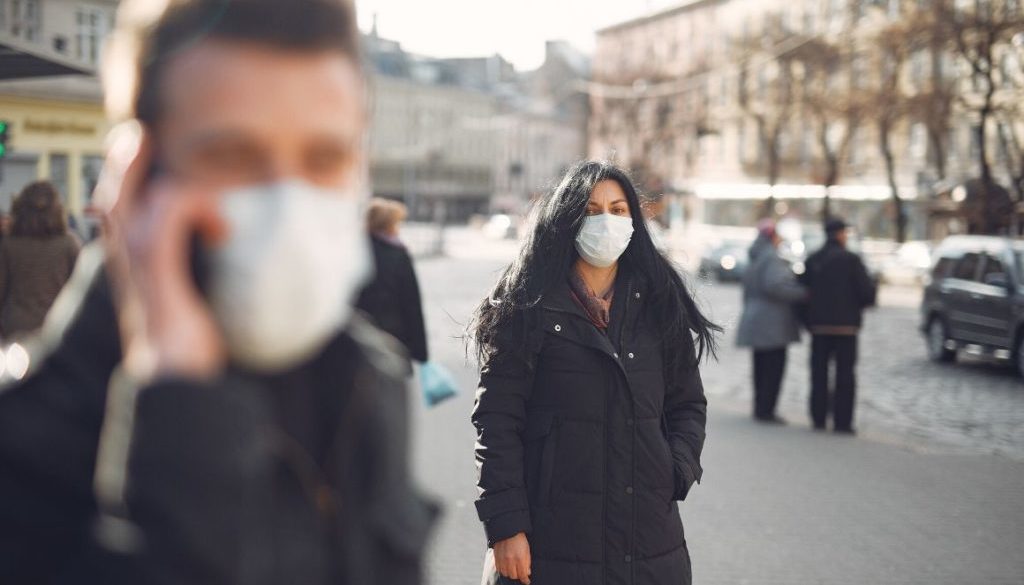Walking The Fine Line Of COVID-19 Corporate Communication
As the world weathers the COVID-19 storm, many brands continue to face disruption and significantly decreased demand as a result of federal, state and local measures to slow the spread of this highly contagious virus. It has had a devastating impact on many businesses and communities, as about a third of small businesses believe they are only capable of surviving a few months or less. On the other hand, it also presents a valuable opportunity for strong corporate communication throughout the pandemic – a chance for brands and executives to show leadership, compassion and empathy through meaningful public messages that are sensitive to the state of the world.
For many brands, staying silent or sitting on the sidelines is not an option. Not only is that lack of proactive communication a bad look, but those brands are opting out of the most significant public and community relations opportunity of the past decade – if not generation.
However, corporate communication can sometimes go astray and cause the audience to negatively view a brand. Managing a brand’s corporate messaging through a crisis is complex, and the public relations consequences can be harsh and lasting if not handled correctly.
Small businesses can learn from the messaging successes and failures of large companies. Last month the following brands demonstrated the good and the bad of corporate messaging around the pandemic, providing case studies organizations large and small should be mindful of going forward.
Echoing Safety Measures
Governments and organizations around the world are putting out health and safety PSAs daily, and it makes sense for brands to show their support by backing these messages. However, before engaging in thought leadership or public commentary around a crisis, brands should put careful thought and planning into their tone and messaging.
Nike succeeded with their “Play Inside, Play For The World” campaign. Social media posts with captions like “Now more than ever, we are one team” encourage people to do their part by staying inside. Nike is not pretending to be an authority on COVID-19 protocol or overtly promoting a product. Instead, they are putting out a message that backs up health guidelines while still fitting with their brand identity.
Adapting To The New Normal
A global pandemic certainly qualifies as unusual circumstances. Brands need to realize that their usual messaging will not hold up. If a planned campaign does not fit in with the world’s new normal, it may be best to make a change.
Hotels.com recently switched their entire campaign to promote social distancing and changed their tagline to “Just Stay Home.”
“We didn’t feel the tone of our usual advertising was right for the current environment,” a spokesperson for Hotels.com said in a statement to TIME. “For the airtime we had remaining, opted for a message that reinforces the guidance to stay home.”
Although encouraging consumers to stay at home will clearly result in a loss of profit for a travel company, it is likely to pay off for Hotels.com – social media users are praising the brand as sincere and empathetic.
Avoiding Opportunism
In a study by communications firm Edelman, 71 percent of respondents said that they would lose trust in a brand forever if they are perceived as prioritizing profit throughout the pandemic. With this in mind, Coors Light was on thin ice when they planned to launch a campaign promoting themselves as “The Official Beer of ‘Working’ Remotely.”
Information about COVID-19 is constantly changing and brands must come off as genuine and sensitive to the current climate. Coming off as over-eager or opportunistic could have an adverse effect. Luckily, Coors Light turned a potentially disastrous public relations situation into the right move by cancelling the message encouraging people to buy their beer and is instead giving away $1 million worth of free beer to quarantined Americans with their #CouldUseABeer promotion.
Backing Up Words With Actions
In the context of a global crisis, taking action gives brands an opportunity to strengthen loyalty and a sense of community among their customers. Aimbridge Hospitality, owner of Marriot, Hilton and Hyatt Hotels, is doing their part by offering up hotel rooms to New York City healthcare workers. Similarly, Carnival Cruises is volunteering their ships as makeshift hospitals. Some brands, such as these, are cultivating an extremely positive public perception by making a real effort to help battle this crisis.
On the other hand, Amazon CEO Jeff Bezos serves as an example of what not to do. The company faced extreme backlash after Bezos, the richest man in the world, publicly encouraged people to donate to a fund set up to pay his employees.
With many companies questioning how to effectively communicate during a global health crisis, the brands that are going to come out on top are the ones who take the time to put out thoughtful and considerate messaging.
Flackable is a national, full-service public relations agency headquartered in Philadelphia. To learn more about Flackable, please visit www.mariaa191.sg-host.com.




